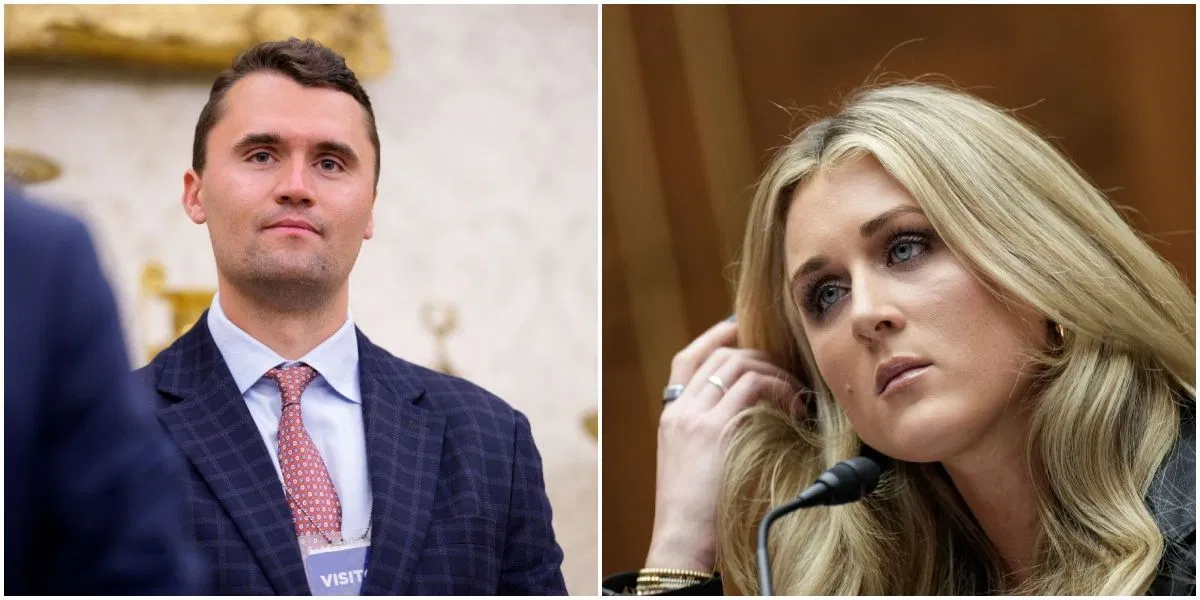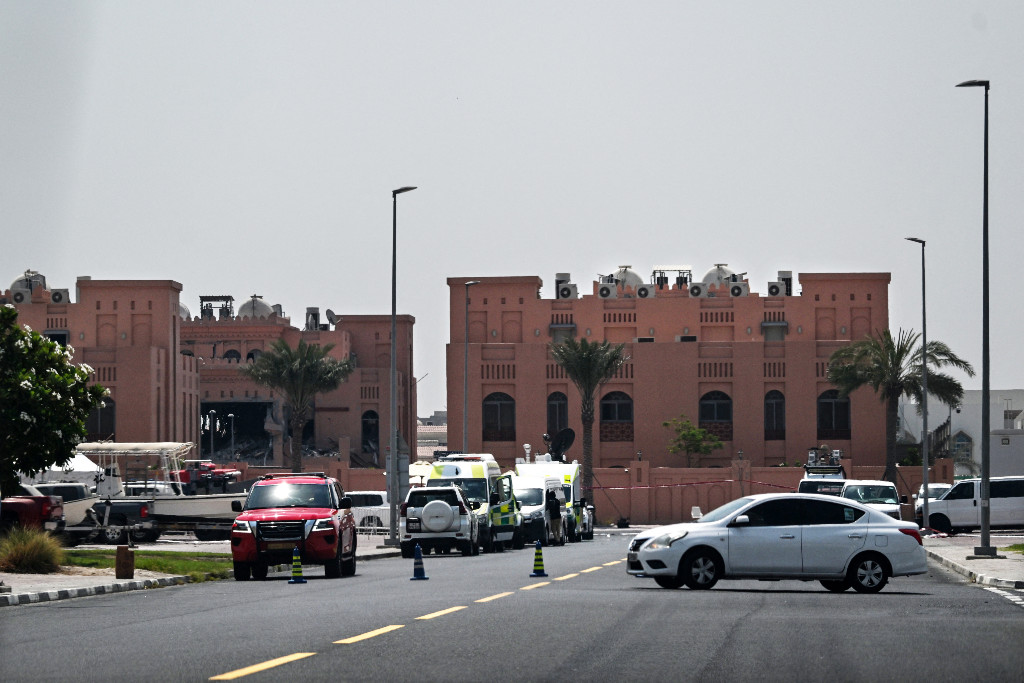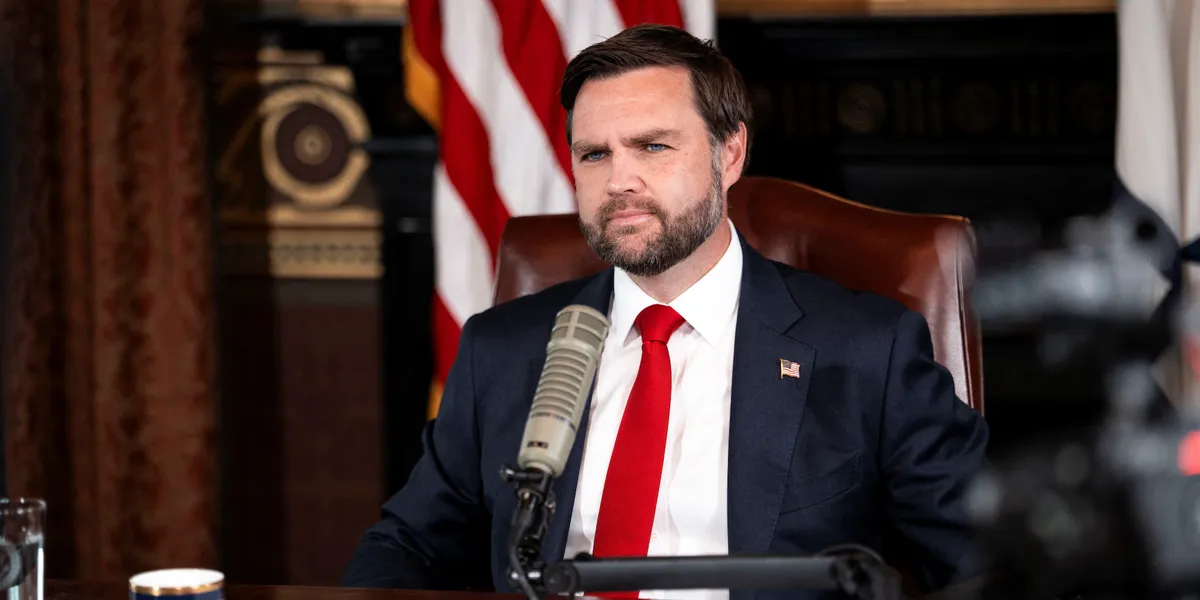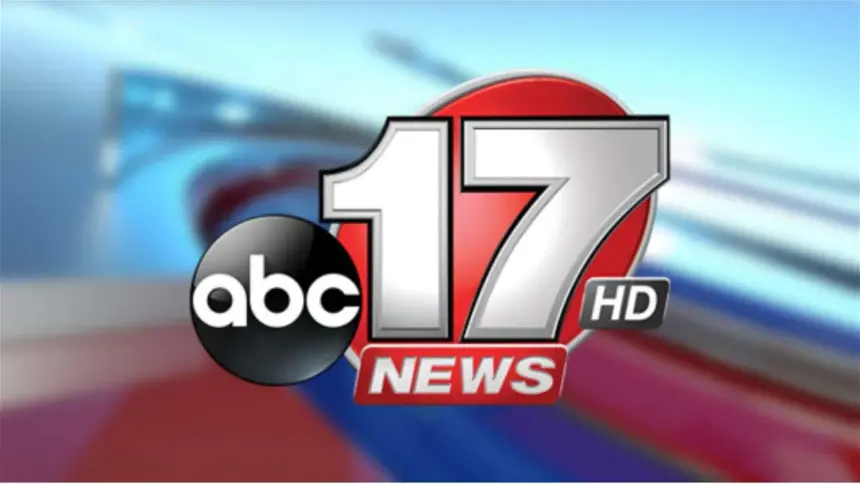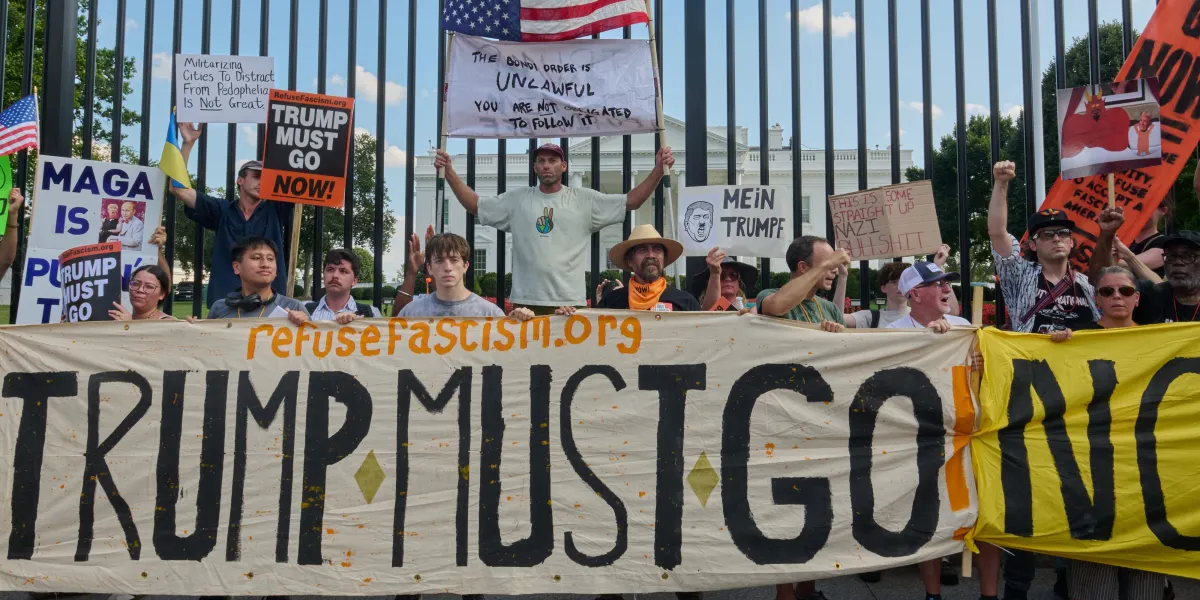
Donald Trump’s obsession with antifa surfaced again Wednesday as the president announced that he was designating the loose-knit anti-fascist political movement as a “major terror organization.”
That phrase does not appear in U.S. law or federal regulations, but legal niceties did not stop Trump from making a nearly identical announcement during the Black Lives Matter protests in 2020.
While there’s no legal mechanism allowing the Trump administration to directly label a domestic terror group, experts warn that the Trump administration could still try to find creative ways to put American activists in court or under financial pressure by tying them to foreign groups.
As Trump and allies try to use last week’s assassination of Charlie Kirk to paint left-wing groups with no ties to the alleged killer as threats to the country, the larger danger may stem from the very looseness of the term antifa, warned Mark Bray, a historian and author of “Antifa: The Anti-Fascist Handbook.”
“There is a kind of paradox. Because on the one hand, it is so vague that how could they make a law designating antifa as a terrorist organization? It’s a broad politics, it’s not a specific organization,” Bray said. “On the other hand, the broadness and the lack of a concrete, overarching organization could allow the Trump administration or judges or prosecutors to label as antifa anyone on the left, particularly the radical left.”
The White House did not respond to a request for comment Thursday.
Trump has taken an expansive view of antifa in the past, once calling a 75-year-old man protesting George Floyd’s murder an “antifa provocateur.” The president suggested Wednesday that he wanted to go after anyone suspected of even funding the movement.
In his social media post, Trump said that he would be “strongly recommending that those funding ANTIFA be thoroughly investigated in accordance with the highest legal standards and practices.”
Designating Terror
For decades, politicians on the left and right have pushed for new laws and policies that would grant the federal government power to brand groups based on American soil as terrorists. Much of the push has been purely rhetorical, with the efforts sputtering out in the face of civil liberties concerns.
Existing law does allow federal prosecutors to charge people with specific domestic terror offenses, but it is used sparingly compared to alleged foreign terrorists, according to a 2019 analysis by The Intercept. Prosecutors generally prefer to charge alleged domestic terrorists with other offenses that they say are easier to prove.
After the January 6, 2021, assault on the Capitol in Washington, there were renewed calls for a law that would criminalize domestic terror groups. Civil liberties advocates warned against it because such a law could be used to prosecute unpopular political groups or minorities.
Even without a statute criminalizing membership in domestic terror groups, however, Trump might try to go after American citizens through existing laws that target foreign groups, warned Shayana Kadidal, an attorney at the Center for Constitutional Rights.
The Treasury Department’s Office of Foreign Assets Control, for instance, has a list of over 17,000 names associated with sanctions targets, giving the administration plenty of ways to attempt to tie U.S. citizens to blacklisted foreigners.
“If you look closely at the regulations, it is possible for the government to designate domestic organizations for the offense of having provided support for foreign groups that are already designated,” said Kadidal.
Kadidal represented a U.S. citizen living in America who was branded a “specially designated terrorist” based on alleged links to Hamas in the 1990s. That client was effectively prevented from opening a bank account or spending money on routine expenses. The Treasury Department dropped the designation weeks after he filed a lawsuit in 2012.
Civil liberties advocates also warn that, in 2010, the U.S. Supreme Court opened the door to charging U.S. citizens with the crime of material support for foreign terrorist groups for speech acts alone. The court found that merely providing advice to or coordinating in press releases with foreign groups could constitute material support — something the Trump administration could exploit.
“There are some very narrow pathways they can try to go down,” Kadidal said, “to create trouble if they want to.”
Chilling Effect
One of the more immediate dangers of Trump’s rhetorical gesture may be the “chilling effect,” Kadidal said. The average protester may find it hard to piece through the legal questions around terror designations and decide to stay home.
Trump and his allies have signaled in the week since Kirk’s assassination that they are preparing a broad legal attack on the institutions of the left. As criticisms of Kirk’s far-right- politics proliferated online, Attorney General Pam Bondi said she would prosecute “hate speech,” before backtracking in the face of pushback from the right.
Like Bondi’s remarks, critics fear the administration may overreach dramatically in Trump’s purported pursuit of antifa. His attempt to label the political movement as a terrorist threat could be leveraged against a swath of the left much larger than black-clad protesters on the streets.
In the past, he has casually lumped the movement in with far more hierarchical, center-left organizations.
“Trump and likeminded people view what they consider to be the left as a many-headed hydra, and it has all sorts of heads: It has the George Soros head, it has the antifa head, it has the Black Lives Matter head,” said Bray, the historian who studies antifa. “It’s all, for them, the same monster that they essentially try to label as the Democratic Party. Even though, of course, most people who are part of antifa groups have a lot of criticism of the Democratic Party — to put it mildly.”
